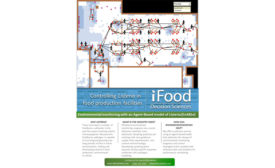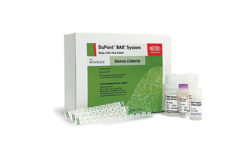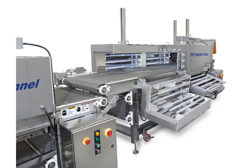Home » Keywords: » Listeria monocytogenes
Items Tagged with 'Listeria monocytogenes'
ARTICLES
AFFI unveils online program for Listeria control in frozen food facilities
This tool discusses food safety best practices that directly address control and prevention of Lm in frozen food manufacturing.
February 25, 2019
Dietz & Watson cuts ties with Deutsch Kase Hause after possible listeria outbreak
Dietz & Watson prepares the vast majority of its branded product at its Philadelphia and Baltimore, Md., facilities.
February 28, 2017
Get our new eMagazine delivered to your inbox every month.
Stay in the know on the latest food and beverage manufacturing markets.
SUBSCRIBE TODAYCopyright ©2024. All Rights Reserved BNP Media.
Design, CMS, Hosting & Web Development :: ePublishing






